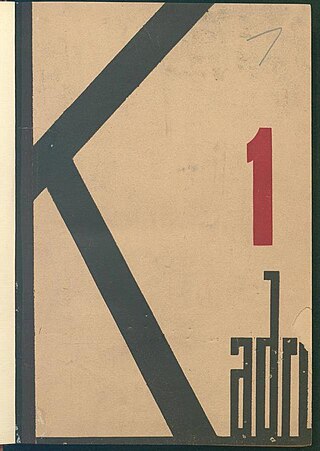Classical liberalism is a political tradition and a branch of liberalism that advocates free market and laissez-faire economics and civil liberties under the rule of law, with special emphasis on individual autonomy, limited government, economic freedom, political freedom and freedom of speech. Classical liberalism, contrary to liberal branches like social liberalism, looks more negatively on social policies, taxation and the state involvement in the lives of individuals, and it advocates deregulation.

Mehmet Ziya Gökalp was a Turkish sociologist, writer, poet, and politician. After the 1908 Young Turk Revolution that reinstated constitutionalism in the Ottoman Empire, he adopted the pen name Gökalp, which he retained for the rest of his life. As a sociologist, Ziya Gökalp was influential in the negation of Islamism, pan-Islamism, and Ottomanism as ideological, cultural, and sociological identifiers. In a 1936 publication, sociologist Niyazi Berkes described Gökalp as "the real founder of Turkish sociology, since he was not a mere translator or interpreter of foreign sociology".
Social liberalism is a political philosophy and variety of liberalism that endorses social justice, social services, a mixed economy, and the expansion of civil and political rights, as opposed to classical liberalism which supports unregulated laissez faire capitalism with very few government services.
Liberal conservatism is a political ideology combining conservative policies with liberal stances, especially on economic issues but also on social and ethical matters, representing a brand of political conservatism strongly influenced by liberalism.
This article gives an overview of liberalism in Turkey. Liberalism was introduced in the Ottoman Empire during the Tanzimat period of reformation.

Kemalism, also known as Atatürkism, or The Six Arrows, is the founding and official ideology of the Republic of Turkey based on the ideas and legacy of Mustafa Kemal Atatürk.

Kadro was an influential left-nationalist and left-Kemalist magazine published in Turkey between January 1932 and December 1934. The title of Kadro translates from Turkish as "cadre".

The one-party period of the Republic of Turkey began with the formal establishment of the country in 1923. The Republican People's Party (CHP) was the only party between 1923 and 1945, when the National Development Party was established. After winning the first multiparty elections in 1946 by a landslide, the Republican People's Party lost the majority to the Democratic Party in the 1950 elections. During the one-party period, President Mustafa Kemal Atatürk repeatedly requested that opposition parties be established to stand against the Republican People's Party in order to transition into multi-party democracy. Kâzım Karabekir established the Progressive Republican Party in 1924 but it was banned after its members' involvement in the 1925 Sheikh Said rebellion. In 1930 the Liberal Republican Party was established but then dissolved again by its founder. Despite Atatürk's efforts to establish a self-propagating multi-party system, this was only established after his death in 1938.
Ahmet Ağaoğlu, also known as Ahmet Bey Ağaoğlu, was a prominent Azerbaijani and naturalized Turkish politician, publicist and journalist. He was one of the founders of Pan-Turkism and liberal Kemalism.

The Democrat Party was a centre-right political party in Turkey, and the country's third legal opposition party, after the Liberal Republican Party established by Ali Fethi Okyar in 1930, and the National Development Party established by Nuri Demirağ in 1945. Founded and led by Celâl Bayar and Adnan Menderes, it was the first of the opposition parties to rise to power, de-seating the Republican People's Party during the national elections of 1950 and ending Turkey's one party era. The party ″facilitated the resurgence of Islam, especially at the popular level, in Turkey″.

The Liberal Republican Party was a political party founded by Fethi Okyar upon President Kemal Atatürk's request in the early years of the Turkish republic.

Turkish nationalism is a political ideology that promotes and glorifies the Turkish people, as either national or ethnic definition. Turkish nationalism is associated with Turkification as a series of cultural and linguistic practices to promote the Turkish language and culture. It also has a complicated relationship with Islam, Pan-Turkism, and Turanism.
Economic liberalism is a political and economic ideology that supports a market economy based on individualism and private property in the means of production. Adam Smith is considered one of the primary initial writers on economic liberalism, and his writing is generally regarded as representing the economic expression of 19th-century liberalism up until the Great Depression and rise of Keynesianism in the 20th century. Historically, economic liberalism arose in response to feudalism and mercantilism.

Erdoğanism or Tayyipism refers to the political ideals and agenda of Turkish President and former Prime Minister, Recep Tayyip Erdoğan, who became Prime Minister in 2003 and served until his election to the Presidency in 2014. With support significantly derived from charismatic authority, Erdoğanism has been described as the "strongest phenomenon in Turkey since Kemalism" and used to enjoy broad support throughout the country until the 2018 Turkish economic crisis which caused a significant decline in Erdoğan's popularity. Its ideological roots originate from Turkish conservatism and its most predominant political adherent is the governing Justice and Development Party, a party that Erdoğan himself founded in 2001.

Kemalist historiography is a narrative of history mainly based on a six-day speech delivered by Mustafa Kemal [Atatürk] in 1927, promoted by the political ideology of Kemalism, and influenced by Atatürk's cult of personality. It asserts that the Republic of Turkey represented a clean break with the Ottoman Empire, and that the Republican People's Party did not succeed the Committee of Union and Progress (CUP).

Atatürk's Principles consist of six principles that determine the pragmatic policies of Turkey's first president, Mustafa Kemal Atatürk, which he put into effect under his administration. These principles came to be the fundamental pillars of the Republican People's Party, the founding and sole party of the country, on 13 May 1935. Later, the principles were added to the 1924 Constitution with a law enacted in 1937 and thus became the national ideology of Turkey with this practice.
Liberalism has been a notable ideology in Poland for hundreds of years. Polish liberalism emphasizes the preservation of democracy and opposition to authoritarianism. Liberalism was first developed in Poland as a response to the Polish–Lithuanian monarchy, and it continued to develop in response to the partition of Poland through the 19th century and Communist rule in the 20th century. Poland has officially been a liberal democracy since 1989, though its status has challenged as a result of illiberal reforms in the 2010s and 2020s.
Post-Kemalism, especially in Turkish academia and political debate, is a movement that argues that the source of Turkey's political and cultural problems, especially democratization, lies in the military-bureaucratic İttihadist and Kemalist ideology, and its basis is questioning Turkish official historiography. The post-Kemalist movement, which emerged after coup of 1980, became the center of Turkish historiography with the coming to power of the Justice and Development Party in the 2000s, and started to decline after the 2010s.
Kadın Gazetesi was a weekly publication targeting women besed in Istanbul, Turkey, between 1947 and 1979. It was started as a weekly newspaper, but became a weekly magazine from 1962. It adopted a Kemalist and feminist political stance. It is one of the earliest women's publications with a clear ideology in Turkey.
Plebism is an idea influenced by narodnik and populism. It is similar to Atatürk's principle of plebism, but should not be confused.











